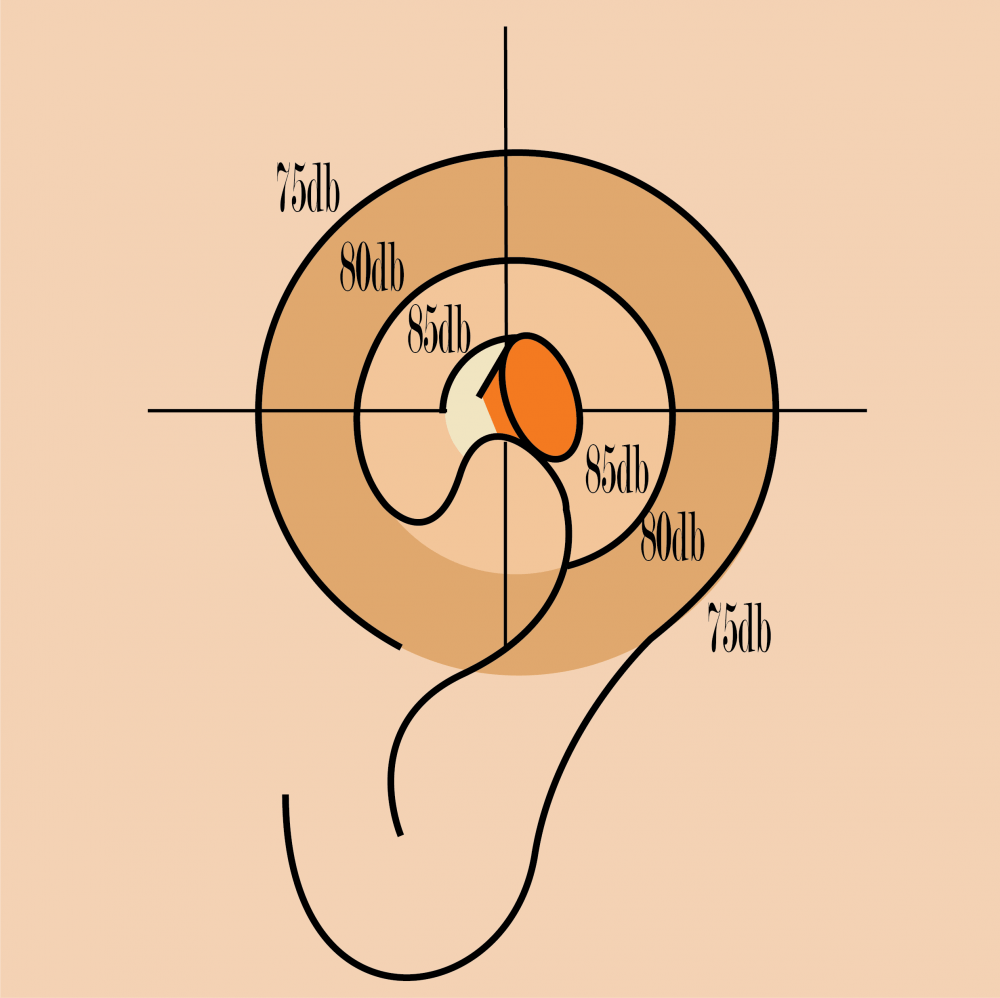There's the old adage of nails on a chalkboard. Everyone who hears this sound hates it, but what if the annoyance was more pervasive than that? What if hearing nails on a chalkboard caused someone to become so irrationally irritated that they couldn't control it? What if it made them scream for hours on end? What if it caused them physical pain?
Misophonia is such an affliction. Misophonia International, a website created to build awareness of the disease, defines the sensory-processing disorder misophonia as "a neurological affliction that causes a fight/flight/freeze response to otherwise normal visual and audial stimuli." In other words, affected individuals have a stronger than normal response to irritating sounds and, like ADHD or autism, it can't be controlled.
A less formal definition comes from Chip Hahn, a clinical professor in Miami's Department of Speech Pathology and Audiology.
"Misophonia is extreme sensitivity to a specific sound or type of sounds," Hahn said. It's not just that you're annoyed by it, it causes psychological stress and trauma."
Everyone with misophonia is affected differently by the condition, but those with the disease are angered and highly affected by specific noises. Specific triggering noises and respective reactions vary.
"I get so irrationally irritated by the sounds of people chewing," said Brittney Greer, a second-year Art Education major. "But it's not just that, it's small noises, too, like someone crinkling a wrapper or squeezing a water bottle. It's so bad to the point where if I'm watching a movie and there's a dinner scene I will turn it off because the sound bothers me that much."
She first started noticing signs of misophonia back when she was 12. Back then, she didn't know the name of the disease and just thought she was overreacting.
The people around Greer telling her she was indeed overreacting didn't make that assumption any better.
"Back then, it caused a lot of arguments with my mom because she didn't acknowledge it as a real problem," Greer said.
A year ago, when she was scrolling through Facebook, Greer's mom found an article about misophonia and sent it to her daughter. That was the first time Greer ever heard the term.
"That's me," she thought. There was finally a reason for why she reacted the way she did to certain sounds.
A more extreme case of misophonia comes from second-year Miami student, Alex Saccocio. While he doesn't have misophonia himself, he is familiar with the hours of screaming it can induce because he grew up with a younger brother who has the condition.
His brother's disease has affected his entire family to the point where Saccocio's mom is now actively involved in several misophonia support groups and knows most everything about the condition.
Saccocio's mom reflected on one of the earliest signs of the seriousness of her son's condition. When he was 12, she remembers them driving in their car in the pouring rain with the windshield wipers on. Her son kept saying that he wanted to jump out of the car and walk the five miles home in the rain because he couldn't stand the sound of the wipers.
It was only after dragging him kicking and screaming to a cognitive behavioral psychologist that their family realized he had an incurable disease.
"When someone says your son has an 'incurable ailment,' you're gonna go crazy," Saccocio's mom said. "That's when I learned everything I could about the disease and joined misophonia support groups."
The repetitive, mechanical sounds like ceiling fans affected Saccocio's brother the most.
When Saccocio's brother was 12, he moved out and lived with his aunt for a year. This complete change of environment, a new neighborhood, new school, was meant to lessen the severity of his condition. During that year, Saccocio was responsible for the difficult task of regularly checking in on his brother.
"I remember a lot of screaming," Saccocio talks about his brother's condition. "It's shaped a lot of who I am as a person. I was a sensitive child, timid. But if I can get through that year, I can get through anything."
Today, misophonia is not something that a person can be officially diagnosed with. Most individuals including Greer are self-diagnosed. The problem is that many doctors and psychologists don't even know what it is. Many of the professors and staff on campus are unaware of this condition as well.
"I think a lot of people [with misophonia] suffer in silence about it." said Hahn. "Misophonia is a very poorly understood condition that is not widely known or researched."
Those who have been impacted by the disease themselves, whether indirectly or directly, wish this was different.
Greer wishes people would understand that sometimes she gets angry and she can't control it.
"I try to be courteous of other people who don't know what it is," Greer said. " I try not to get angry with them, but sometimes it just happens and I don't mean to."
Saccocio's mom wishes more people come to know about the disease and treat it like an actual problem.
"People don't take it seriously," Saccocio's mom said. "If someone had a peanut allergy, do you think it's fun to give them a cookie with peanuts in it?"
Saccocio wishes more people knew about it so that those who do have it would realize they're not alone.
"People who have it [misophonia] try to hide it, and that's a problem," Saccocio said. "I think if more people knew about it, the people who do have it would be more comfortable acknowledging it and then they'd realize that they're not alone."
melendak@miamioh.edu

